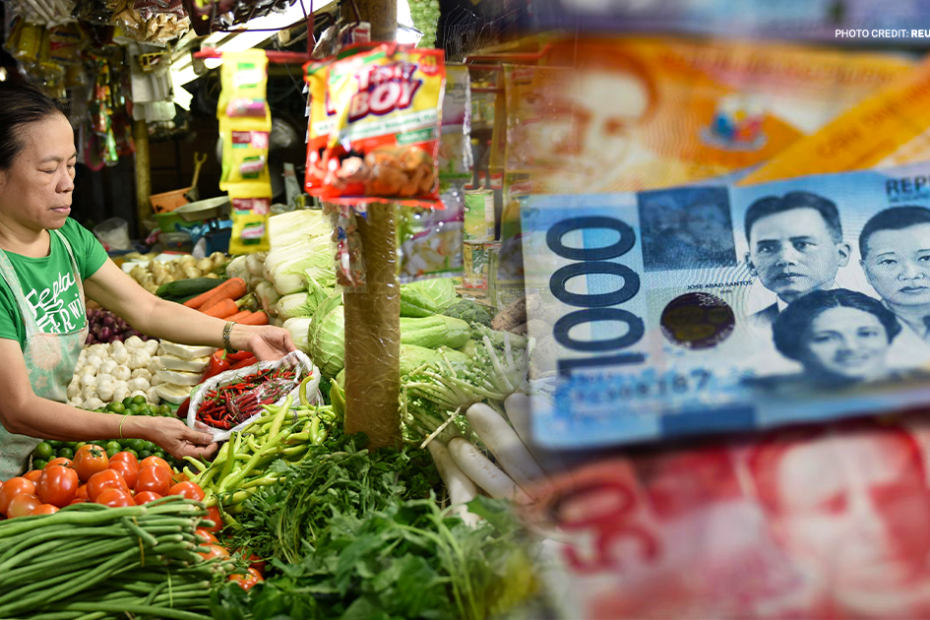Inflation is a term that we often hear on the news, but many Filipinos may not fully understand how it affects our daily lives. Simply put, inflation refers to the general rise in the prices of goods and services over time. As prices go up, the purchasing power of your money decreases, meaning the same amount of money buys you less than it used to.
Inflation impacts everything in the Philippines, from the price of food to the cost of living. Understanding inflation and how it affects your finances is essential to making informed financial decisions.
In this guide, we’ll explore how inflation affects your savings, investments, and daily expenses, and we’ll share practical tips on how Filipinos can protect themselves from its negative effects.
1. The Basics of Inflation
Inflation is usually measured by the Consumer Price Index (CPI), which tracks the average price changes of goods and services in a country. When inflation rises, it means the overall cost of goods and services is increasing. In the Philippines, the Bangko Sentral ng Pilipinas (BSP) monitors inflation and adjusts monetary policies to try to keep it within a target range. However, inflation can still fluctuate due to various factors such as global oil prices, supply chain disruptions, or natural disasters.
For example, the Philippines experienced inflation spikes due to the global pandemic and the Russia-Ukraine conflict, which led to higher fuel and food prices. These inflationary pressures make it harder for Filipinos to maintain their purchasing power and manage everyday expenses. The cost of goods and services rises, but our salaries and savings don’t always keep up.
2. How Inflation Affects Your Daily Expenses
Inflation affects your everyday expenses in a very real way. The rise in prices means that the money in your wallet or bank account no longer stretches as far as it used to. Here’s how inflation typically impacts the daily expenses of Filipinos:
- Groceries: You’ve probably noticed that the price of basic necessities like rice, meat, and vegetables has gone up. Inflation makes it more expensive to feed your family, and even small price increases can add up over time, forcing you to spend more on food each month.
- Transportation: As fuel prices rise, so do public transportation fares and ride-hailing services like Grab. Even maintaining a personal vehicle becomes more expensive due to higher gasoline and maintenance costs.
- Housing: Whether you rent or own a home, inflation can lead to higher costs. Rent rates may increase as landlords face higher maintenance expenses, and homeowners may see rising utility bills and property taxes.
If you continue spending the same way you did before, inflation will slowly but surely eat into your budget, forcing you to either adjust your lifestyle or save less. Filipinos are no strangers to belt-tightening, but when inflation accelerates, cutting down on expenses becomes even more challenging.
3. Inflation and Your Savings
Inflation also affects your savings. Over time, inflation erodes the value of your money. This means that the peso you saved today will be worth less in the future because it can buy fewer goods and services.
For example, let’s say you have ₱100,000 in a savings account that earns 1% interest annually. If inflation is at 4%, the purchasing power of your money is decreasing by 3% every year. While your balance may be increasing slightly, its real value is shrinking. This is why many Filipinos, especially those relying on traditional savings accounts, feel the squeeze of inflation over time.
To combat this, it’s important to consider placing your savings in investment vehicles that can outpace inflation. High-interest savings accounts, government bonds, or diversified investments can help protect your money from losing value due to inflation.
4. How Inflation Impacts Investments
When it comes to investments, inflation presents both risks and opportunities. For Filipinos with savings in fixed-income investments like bonds or time deposits, rising inflation can reduce real returns. The interest you earn may not keep up with the rising cost of living, effectively lowering the value of your returns.
However, certain assets, such as stocks, real estate, and inflation-indexed bonds, tend to perform better during inflationary periods. Here’s why:
- Stocks: Many companies raise their prices to keep up with inflation, which can boost their revenues and, in turn, their stock prices. However, not all sectors benefit equally from inflation. Careful stock selection is essential, as some industries may struggle with rising costs while others thrive.
- Real Estate: Real estate values tend to rise along with inflation, making property a good hedge against inflation in the long run. In the Philippines, where real estate continues to be a popular investment, owning property can provide both value appreciation and rental income.
To protect yourself from inflation, it’s important to regularly review your investment portfolio and ensure it’s well-diversified. A mix of assets that perform well in different economic conditions can help preserve and grow your wealth even during times of rising inflation.
5. How to Protect Your Finances from Inflation
Inflation is inevitable, but there are steps you can take to protect your finances and minimize its negative effects. Here are some strategies Filipinos can adopt:
- Invest in Inflation-Protected Assets: Consider assets that tend to hold or increase their value during inflation, such as stocks, real estate, or inflation-protected bonds. These assets can help you keep up with the rising cost of living.
- Diversify Your Investments: A diversified portfolio can help spread risk and capitalize on different growth opportunities. By investing in a mix of assets—such as stocks, bonds, real estate, and even mutual funds—you can reduce the impact of inflation on your overall wealth.
- Save in High-Interest Accounts: Look for financial products that offer higher interest rates than traditional savings accounts. High-interest accounts, time deposits, or money market funds can help your savings grow faster and mitigate the effects of inflation.
- Control Your Spending: Be mindful of your spending habits. It’s essential to cut back on unnecessary expenses and create a budget that accounts for rising prices. Tracking where your money goes can help you adjust more easily when inflation spikes.
- Increase Your Income: Inflation erodes not just the value of your savings but also your spending power. Look for ways to increase your income through side gigs, investments, or by advancing your career. The additional income can help cushion the blow of rising prices.
- Review Your Financial Plan Regularly: Inflation can change quickly, so it’s important to review your financial plan frequently. Make adjustments based on the current inflation rate and your financial goals to ensure you stay on track. Your strategy should be flexible enough to adapt to changing economic conditions.
Final Thoughts
Inflation might seem like a complicated concept, but every Filipino feels its effects in their everyday life. From the increasing cost of basic goods to the loss in value of our savings, inflation can have a significant impact on our financial well-being. However, by understanding how inflation works and taking steps to protect our finances, we can reduce its negative impact.
Through smart investments, choosing high-interest savings accounts, or diversifying our portfolios, we Filipinos have several options to make sure our money maintains its value. By staying informed and proactive, we can make inflation work in our favor instead of against us.

